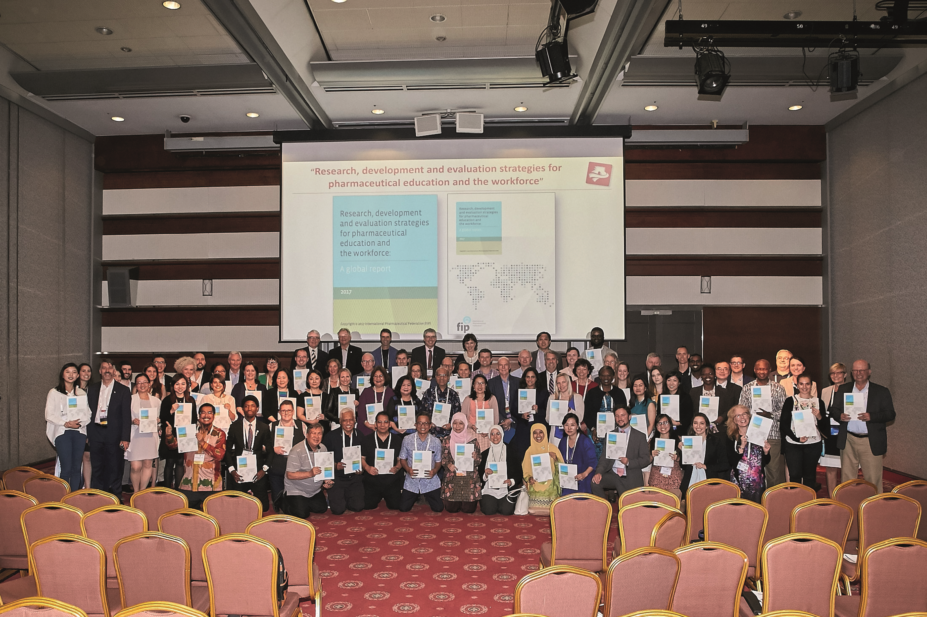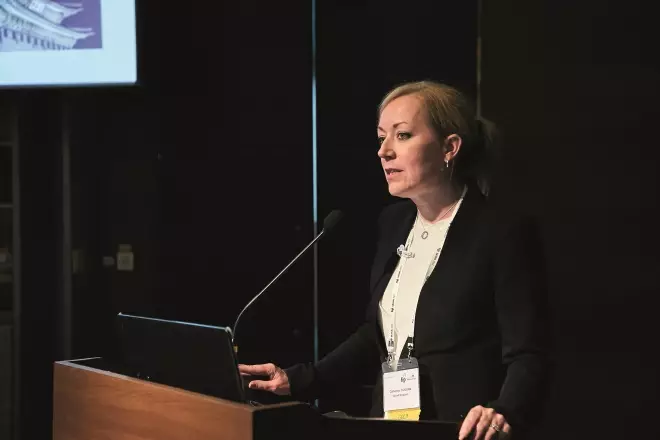
International Pharmaceutical Federation (FIP)
Efforts by the Royal Pharmaceutical Society (RPS) and the General Pharmaceutical Council (GPhC) of Great Britain to promote education and training for pharmacists are cited as examples of success in implementing the International Pharmaceutical Federation’s (FIP) Pharmaceutical Workforce Development Goals (PWDGs), according to a report published on 12 September as part of the World Congress of Pharmacy and Pharmaceutical Sciences in Seoul.
The global report, prepared by the FIP education development team, evaluates national-level pharmaceutical workforce strategies and their alignment with the PWDGs. The goals were adopted in 2016 at the Global Conference on Pharmacy and Pharmaceutical Sciences Education, and are intended to provide strategic support to member organisations in developing their pharmaceutical workforce.
As part of the report, 21 countries provided comprehensive case studies on their progress towards the 13 PWDGs (see box on ‘The FIP Pharmaceutical Workforce Development Goals’).
Ian Bates, professor of pharmacy education at University College London and director of the FIP Education Development Team, said: “This most recent report, taken with the Nanjing workforce development goals and ‘Transforming our Workforce’ report from 2016, collectively form a systematic framework for transformative workforce development, something that has not been previously attempted in a healthcare workforce.
“In the past, our professional approach has been too piecemeal and the global imperatives currently facing us require far more robust and holistic actions. We hope that national agencies will link to these global directives.”
The report found that there is currently a high level of alignment between the national pharmacy workforce strategies in Britain and the PWDGs, demonstrating the commitment of the RPS to develop a flexible and adaptable workforce. PWDGs that mapped strongly against RPS strategies include foundation and advanced frameworks, competencies for revalidation and career development.
When asked to outline priorities for the next five years, case study authors from Britain identified four key priority areas aligned with the PWDGs and these focus on foundation training and early career development, particularly in community practice; advanced and specialist expert development through professional recognition; flexible workforce education and training for new service provision; and continuing professional development, particularly linked with revalidation. Overall, the key challenges for all countries were around policy and strategy formation and workforce intelligence.
Progress report
Director of professional development and support at the RPS, Catherine Duggan, who presented a progress report at the world congress, told delegates: “Work towards achieving the goals is a marathon, and we’ve run only the first mile.

Source: International Pharmaceutical Federation (FIP)
Catherine Duggan, director of professional development and support at the Royal Pharmaceutical Society, presented a progress report at the world congress
“In Britain, there are many drivers influencing workforce, and within our three nations, there are three very different governments and ways in which we are governed. This all means we need to adopt a flexible approach.”
She said there were new and exciting roles, working in GP practices and care homes, but existing roles still needed to be embraced, as patients had the same needs regardless of where they were being treated. This shows we need a flexible and adaptable workforce.
The report pointed to a shortcoming on data around pharmaceutical scientists, saying: “Although evidence does exist on the National Health Service pharmaceutical workforce in Britain, comparable information on pharmaceutical scientists is lacking — a shortcoming that needs to be addressed.”
The 78th FIP World Congress next year will be hosted by the Royal Pharmaceutical Society in Glasgow from 2–6 September 2018. This is the first time for nearly 40 years that the FIP World Congress has been held in the UK. Registration will open in January 2018. More information on the event can be found at: https://www.rpharms.com/events/fip-glasgow-2018.
’Research, development and evaluation strategies for pharmaceutical education and workforce: A global report’ is available here.
The FIP Pharmaceutical Workforce Development Goals
1. Academic capacity
2. Foundation training and early career development
3. Quality Assurance
4. Advanced and specialist expert development
5. Competency development
6. Leadership development
7. Service provision and workforce education and training
8. Working with others in the healthcare team
9. Continuing professional development strategies
10. Pharmaceutical workforce gender and diversity balances
11. Workforce impact and effect on health improvement
12. Workforce intelligence
13. Workforce policy formation
You may also be interested in

FIP draws up first global pharmacy workforce development goals

Medicines shortages and slow approvals put ‘significant burden’ on pharmacists, says report
